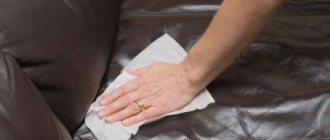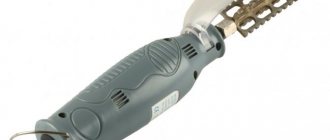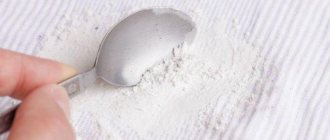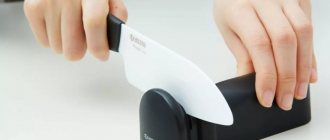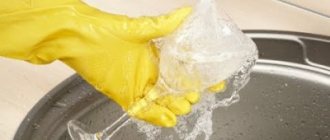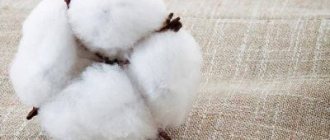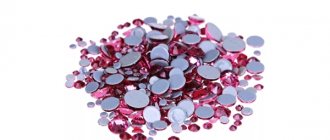A samovar is a water heater that belongs to ancient traditions that our ancestors maintained. It is also found in the homes of modern people. The advantage of the device is its ability to maintain water temperature for a long time, which is absent in other conventional kettles. Due to the widespread use, the question of how to clean a samovar is relevant for many people. It is relatively easy to clean it from plaque and other contaminants, and this can be done with improvised means.
Cleaning the brass surface
A brass samovar is cleaned with ammonia or oxalic acid.
Ammonia
Using ammonia for cleaning a regular and electric samovar:
- lightly moisten the cloth with ammonia;
- wipe the surface;
- rinse.
Oxalic acid
When working with oxalic acid, use gloves:
- stir oxalic acid in water according to the instructions (usually 100 g/3 l);
- moisten the surface of the device with liquid for 5 minutes;
- wash away;
- clean with soda;
- rinse;
- Rub the samovar until shiny with a soft cloth.
Cleaning small parts
Small parts of the samovar can be cleaned by boiling them for 30 minutes in a solution of water and soda ash (½ l:20 g).
How to prevent scale from appearing
If a white coating constantly appears in your samovar, it means the water is too hard. It contains a lot of mineral salts, and believe me, this is not “Essentuki” at all. If you drink such water constantly, your teeth will deteriorate and problems with your stomach, liver and kidneys will begin. To prevent this from happening:
- Buy clean bottled water.
- Install a quality water filter.
Inexpensive models remove only mechanical contaminants: fine suspension, rust, tiny particles of debris. But you need a softening filter or reverse osmosis filter. Such models are more expensive and more difficult to install.
Cleaning stainless steel surfaces
Stainless steel cookware loses its luster over time, becomes dull, and becomes stained. There are several options for cleaning a stainless steel samovar. The most commonly used are Goya paste and vinegar, available in every home.
Vinegar
Using vinegar is very simple:
- moisten a cotton pad or swab with 9% vinegar;
- wipe the surface.
Paste GOI
In addition to stainless steel, Goya paste can be used to clean copper samovars and brass products. It can not only clean, but also add shine:
- put a little paste on a soft cloth;
- clean the product;
- Remove residues with alcohol.
Important! Apply the paste gradually - after cleaning one area, apply it to another area.
How to polish a samovar
Harsh abrasives should not be used. They will leave noticeable scratches on a smooth metal surface.
To polish a samovar, use:
- GOI paste. This product is sold in hardware stores. Apply the paste to a soft cloth and gently rub the surface with gentle movements until it shines. Then rinse and wipe with a cloth.
- A mixture of tooth powder and 10% ammonia. Make a paste, apply a little to the surface and rub lightly with a cloth. To remove the composition, simply wipe the samovar with a damp cloth.
- Special products for polishing non-ferrous metals. They are sold in auto stores. Apply the product according to the instructions, wipe with a cloth - and the samovar will shine like new. But don't forget to wash the container thoroughly. Remember: these products are not intended for dishes, but for cars.
- Powdered chalk. The softest and most ineffective way. It is used for very sensitive but not contaminated surfaces.
Some dull areas can be polished with toothpaste. Choose not bleaching, but the most common toothpastes - they do not contain abrasives.
Internal cleaning
After cleaning the outer surface, you should remove the scale in the samovar, which can significantly distort the taste of the prepared drinks. You can clean the inside of the samovar using the following means.
Sweet sodas
The first option on how to clean the inside of a samovar is to use sweet sodas (for example, Sprite, Coca-Cola, etc.):
- pour soda into the samovar;
- leave overnight;
- pour out;
- clean off dirt with a brush;
- rinse.
Potato peelings
Using potato peelings is an old way to remove scale:
- rinse cleaning;
- pour them into the samovar;
- fill with water;
- boil for 30 minutes;
- leave to act for 2–3 hours;
- throw away the cleaning;
- rinse;
- Clean any remaining dirt with baking soda;
- rinse.
Cleaning the inside, done with scrubbing and baking soda, should be followed by boiling the water again to complete the process.
Tinning a samovar at home
If you are restoring an antique samovar to boil water in it, be sure to look inside. Do you see a dark film inside that covers the surface of the metal? These are harmful oxides. They need to be removed.
To do this, the samovar is tinned - that is, covered with a protective film of tin. It's easy to do:
- Polish the inner bowl with fine sandpaper and rinse thoroughly.
- Rub the inside of the samovar with soldering acid or ammonia.
- Place the bowl on the fire and melt some soldering tin there. Choose pure metal without impurities.
- Shake the container, distributing the liquid metal along the walls. You can “smear” it with flax fiber, but be careful - the temperature of straightened tin exceeds 230 °C.
- Repeat the procedure until the inner bowl of the samovar is covered with a layer of metal of the same thickness.
In the same way, you can tin any internal surface of the samovar that comes into contact with water.
Useful tips
- Clean the samovar regularly - both outside and inside.
- After use, always drain the remaining water to prevent salt deposits on the walls and prevent scale formation.
- Brass samovars do not tolerate moisture well, so store them exclusively in dry, warm rooms.
- Do not allow a gray-green coating to appear on copper samovars.
- Do not use abrasive substances for cleaning to avoid damaging the surface.
Brass is an alloy of copper and zinc. Upon contact with air, the material oxidizes and loses its original shine. If you pay attention to the manufacturer's mark, you can be convinced of the value of the product. In view of this, it is recommended to trust antique samovars to professionals.
Do you like guys with long hair?
Not really
- Abrasives, i.e. powders, because this leads to micro-scratches.
- Products based on citric, hydrochloric, acetic or phosphoric acids. Such components wash out the zinc contained in the alloy. The product in this case will have a pink-red surface.
Before cleaning, degrease the surface of the utensil using a mild detergent. The household is suitable for these purposes. soap, dishwashing detergent and the like.
The following method using oxalic acid applies to old stains:
Also, cleaning a brass samovar is carried out with ammonia. This product effectively copes with deep and old plaque. To do this, apply ammonia to a soft cloth and wipe the oxidized areas.
Attention! Brass should not be exposed to moisture. In view of this, it is recommended to store the product in a dry place.
Brass samovar: how to clean it at home
In order to remove various contaminants from the outer part of a copper samovar, you can use the following means:
Expert opinion
Ekaterina Korneva, expert in the field of care, cleanliness and beauty
I will help you understand all the intricacies.
The resulting mixture is applied to the surface of the unit and held for 5 minutes, no need to rub anything. In order not to spoil the antique samovar, which bears the mark of the master, its cleaning should be entrusted to professionals. How to clean a samovar? - at home from scale inside and outside. If you have any questions, please contact me, I will be happy to answer!
Folk recipes
How to descale a samovar using natural products? Everything is very simple. Fans of folk remedies recommend cleaning keratinized walls with lemon, potato peels or apple peelings.
It should be noted that this method is less effective than the previous ones, and the result will be positive if the plaque is not old.
The use of filtered water and timely cleaning will ensure a long service life, and the samovar will last for decades.
What not to clean
Stainless steel products cannot be cleaned with products containing various chlorine compounds. For all types of housings, the use of abrasives is highly discouraged, whether we are talking about products with abrasive particles or sandpaper.
If improperly maintained, the coating can be damaged.
Samovars with brass and copper bodies, as well as products with different decorative coatings, are especially sensitive to mechanical stress. For the same reason, you should avoid rough fabrics and hard brushes. Please note that brass does not tolerate acids, and it is not advisable to clean nickel with soda or powder.
It is very important to know what metal the samovar is made of and select a method based on this.
General information
When was the samovar made?
The choice of cleaning agent depends on how long ago the samovar was manufactured. If the kitchen appliance was made a long time ago, it is recommended to remove the deposits that have formed from the inside, and the patina covering the outside of the samovar gives the product a special antique effect. Also, antique products will require more aggressive agents that can penetrate deep into the material.
Let's disassemble the device.
It is necessary to completely disassemble the samovar if there is a need to restore individual elements of the samovar. To remove contaminants, remove the cover so that the inner walls can be cleaned. Then remove the key, handles, crown and stand.
Basic Rules
When choosing a method for cleaning a samovar, you should consider what material it is made of. But at the same time, there are certain rules that are the basis for cleaning any product. Great care must be taken when handling antique appliances, which are family heirlooms and are passed down from generation to generation. In order not to spoil the antique samovar, which bears the mark of the master, its cleaning should be entrusted to professionals.
In order to properly clean a product made of any material, it is necessary to disassemble it into its component parts. This means removing the handles, top, base and faucet if possible.
How I found my ideal hair growth product
Hello dear! I want to share with you my solution to the sensitive problem of hair loss . The problems are very serious, at least for me. I would never have thought that this misfortune would touch me, especially at the age of 29 (read more...)
- Washing the interior surface always begins with treating the base. This is where plaque accumulates and carbon deposits form.
- It is necessary to disinfect the samovar after washing with folk remedies. A weak solution of potassium permanganate is optimal for this.
- Only after washing the internal surfaces can you clean the outside of the device using special products suitable for the specific material.
- At the last stage, the removable components are cleaned of dirt, and only then assembly is carried out.
Features of operation and prevention of contamination
In a brass samovar, tea is prepared in the same way as in any other samovar. The main condition is that the place where the samovar is installed is safe and comfortable. Measures must be taken to ensure fire safety and avoid burns.
In order for the samovar to serve for a long time, you need to follow these rules:
- A heated samovar should not remain empty, otherwise the inner tube will quickly wear out and the unit will become unusable.
- Soot from coals must be cleaned immediately after use. This makes it easier to remove and there is no need to resort to aggressive cleaning.
- Do not keep water in the appliance between uses. This causes the inner surface to deteriorate.
- It is better to use filtered water to make tea. It produces less scale.
- It is useful to polish the outer surface of the samovar with a special paste 3-4 times a year.
Prevention of a brass samovar includes the following: a heated samovar should not remain empty.
If these rules are followed, the samovar will sparkle clean to the delight of the hostess and treat guests to delicious tea.
